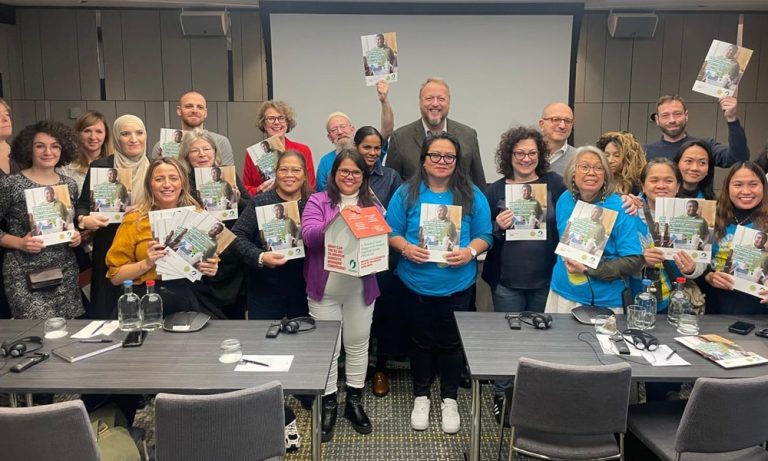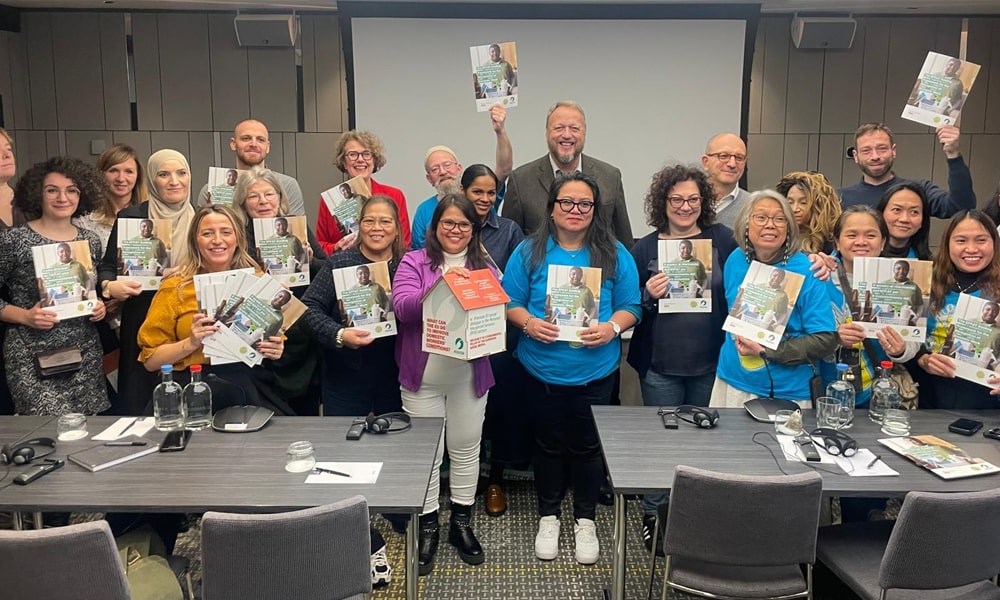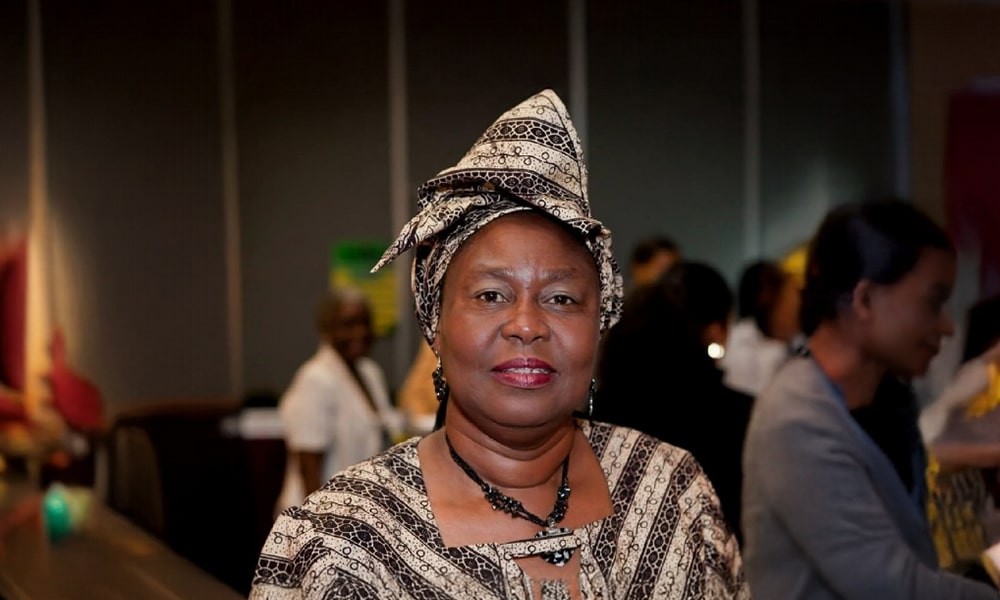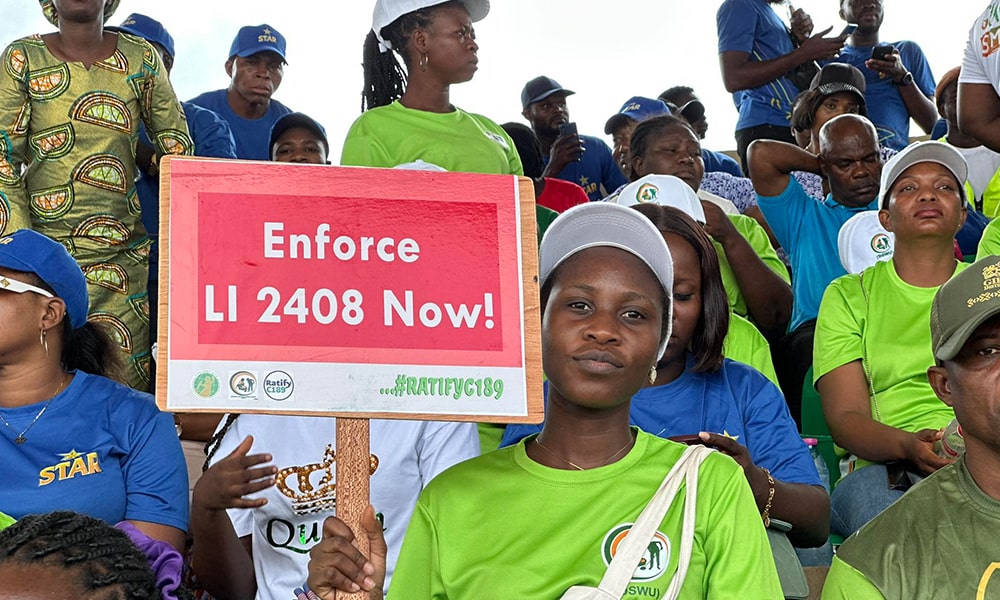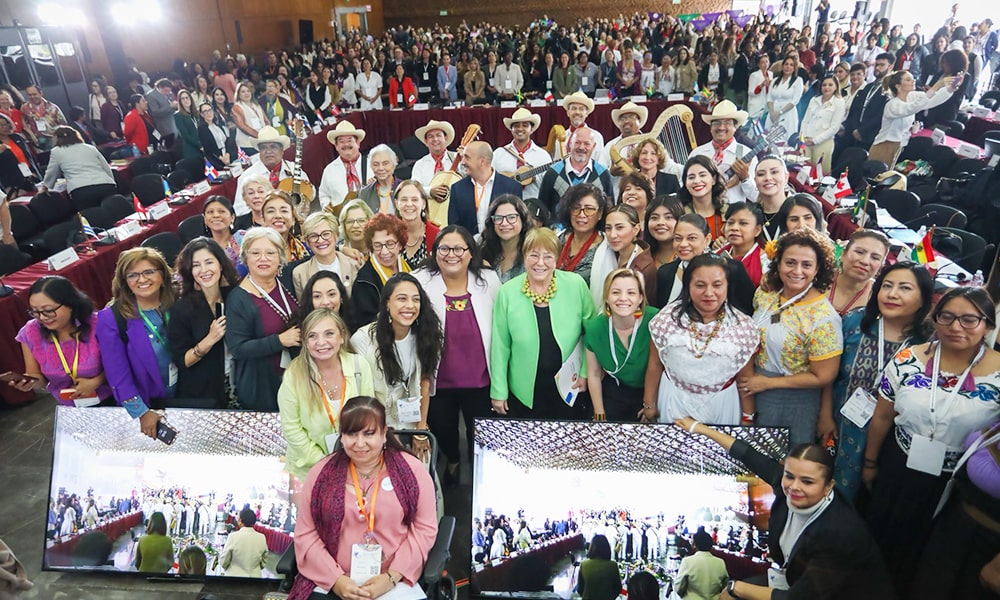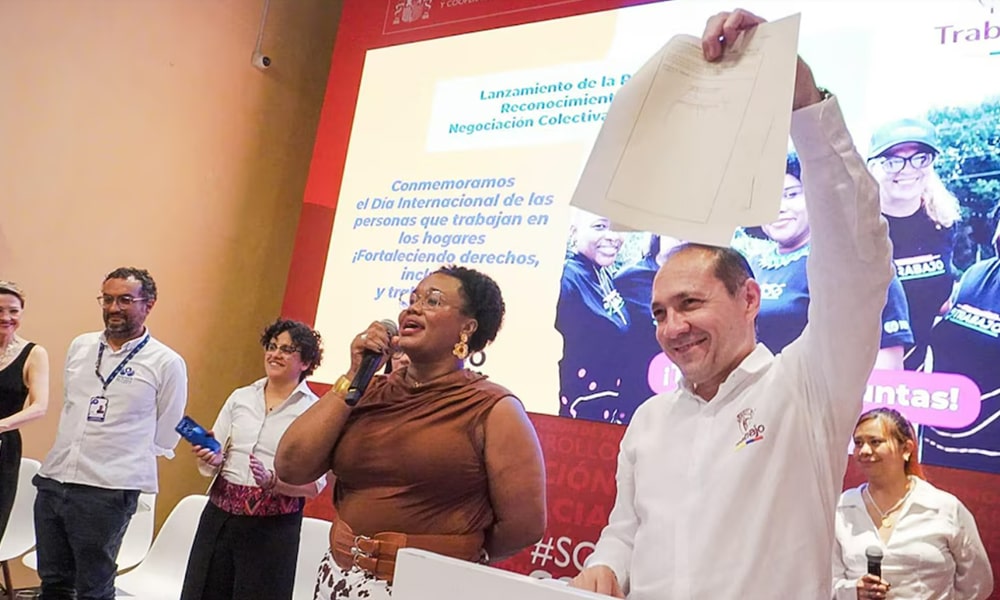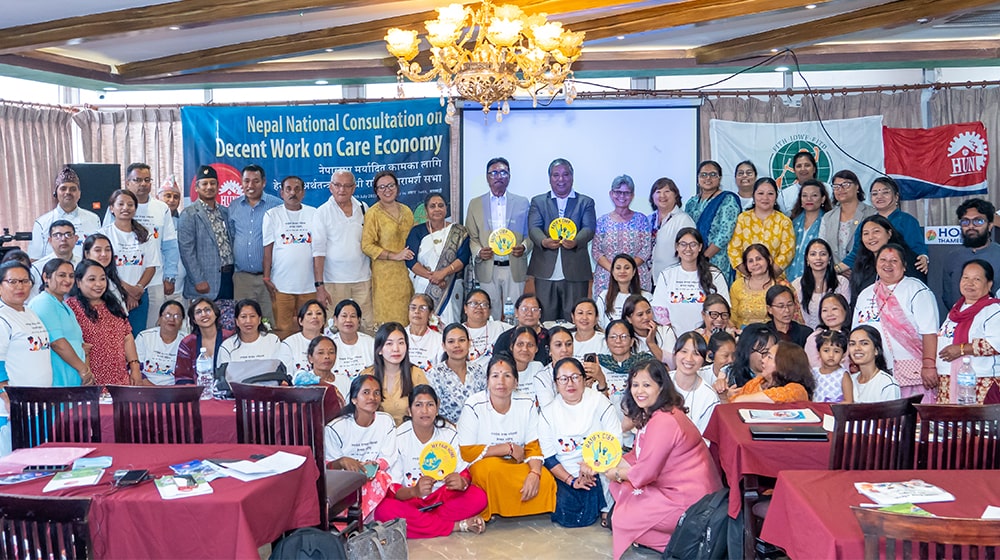IDWF leaders from across the world have arrived in Geneva to represent domestic workers at this year’s International Labour Conference. We are participating in the negotiations for the Recommendation on Transitioning from the Informal to Formal Economy.
Details

SWITZERLAND -IDWF leaders from across the world have arrived in Geneva to represent domestic workers at this year’s International Labour Conference. We are participating in the negotiations for the Recommendation on Transitioning from the Informal to Formal Economy.
IDWF leaders join with other informal workers, including street vendors, home-based workers, waste pickers, and taxi drivers in a delegation organized by WIEGO. The participation of impacted workers in the ILO negotiations helps ground the discussions in reality and holds the representatives of governments, employers, and workers accountable.
Our attendance and presence at the 2015 International Labor Conference in Geneva is a sign of the growing strength of our international movement to ensure the rights of 53 million domestic workers worldwide are protected, and that our voices inspire in relevant international venues discussing worker, migrant, and women’s rights.
More and more work is increasingly similar to domestic work – unregulated, insecure, temporary, informal, part-time, etc – and we will only be able stem this trend by joining together with other informal, precarious, and contingent workers. For all informal workers, formalization must offer benefits and protections – not simply impose the costs of becoming formal. It must restore the universal rights from which workers in the informal economy have been marginalized by the neo-liberal model of governance over the past 40 years, and reintegrate them into legal and regulatory frameworks.
Some of the specific issues we will be negotiating about include:
Specific Protection for Women
Women working in the informal economy need maternity leave so that they do not have to work immediately following delivery. The issue of child care is also a priority, given the overrepresentation of women in the informal economy. Measures are needed for the
prevention of abuse of women, who form the majority of workers in many sectors of the informal economy.
Sector Specific demands for Domestic Workers
- freedom from harassment or abuse by recruiters or employers
- freedom from exploitation by agencies and intermediaries
- implementation of the Domestic Workers’ Convention and accompanying Recommendation as a minimum set of conditions In every country
- the right to a living wage and working conditions such as time and leave, overtime pay, sick leave, health insurance, and pensions
- the right to have workplaces controlled and subject to inspection
- decent living conditions where live-in arrangements are part of the employment contract
- access to education, recreation and leisure time
- no child labour (albeit disguised as family labour)
- migrant workers’ contracts concluded before leaving home countries
- full and equal rights for migrant domestic workers

